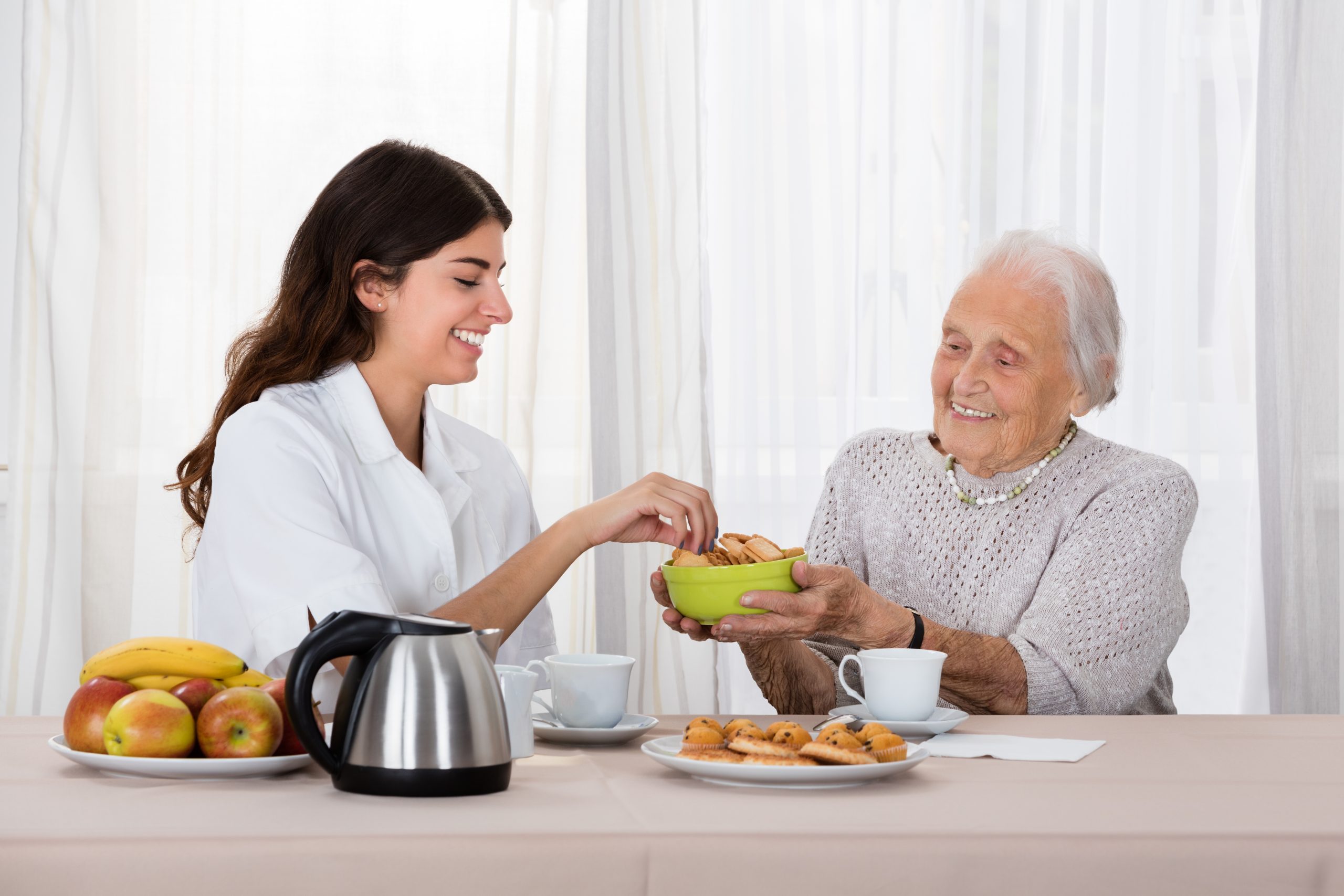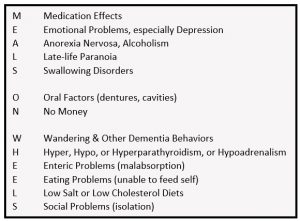Did you know that being underweight is a real concern for older Americans. It is very important to be aware of with this key risk factor for several health conditions in the elderly. We normally think that weight loss is a good thing. This is natural since about two thirds of Americans are overweight. However, when it comes to seniors, weight loss may be a cause for concern. Unintentional weight loss in seniors in Brooklyn has been associated with an increased risk of morbidity and mortality. As such, it is important to address this if it happens in your elderly loved one.
When to Pay Attention
Unintentional weight loss in seniors occurs in about 15-20% of those 65 and older. Evidently, up until your 70s, there is a natural tendency to gain weight. However, that turns around at about age 80. At that point, weight loss can make you even more frail. It is important to consult a physician when a senior loses over 5% of their body weight over the course of 6 to 12 months.
Causes of Weight Loss In Seniors
There could be physical reasons for this loss of weight. First, their medications should be reviewed. They need to be examined for side effects that cause or contribute to weight loss. Unfortunately, it could be a signal for a something more serious going on and a diagnosis might be required.
Of course, a decline in cognitive ability could be a reason for the senior not eating or forgetting to do so. Furthermore, in late-stage dementia, seniors often have dysphagia, difficulty with chewing and swallowing. In all these cases, a geriatrician would be an excellent first stop.
Next, consult a dietician to see if a loss of taste and smell, something common to the elderly, is the source of a decreased appetite. Furthermore, decreased digestion and absorption of nutrients could be a reason for the weight loss.
A cognitive deficit could also be responsible. With so many of the elderly suffering from depression due to lack of health and loss of loved ones, it can very well affect their appetites. Another source of frustration and sadness is their own decrease in mobility and independence. In that case, a geriatric social worker may be someone to turn to.
MEALS ON WHEELS
There is a common mnemonic regarding the causes of unintentional weight loss in seniors.
Associated Risks
- Increased risk of malnutrition
- Decreased immunity and ability to fight infections
- Higher rates of admission to an institution
- Increased risk of in-hospital complications
- Decline in activities of daily living
- Decline in physical function
- Poorer quality of life
- Increased risk of fractures
- Increased risk of death
What Can You Do?
Once any chronic disease or medication interaction has been ruled out by their doctor, there are a few practical suggestions to keep seniors nourished and at a healthy weight.
- Nutritionist to make sure their meals are balanced and they are getting all the nutrients they need. This includes any additional vitamin or mineral supplements.
- Home health aide can help with cooking and making sure the senior actually eats her meals.
- Physiotherapist can help with an exercise regimen. The increase in activity can stimulate appetite and boost energy. Moreover, it can increase muscle mass thereby reducing frailty.
- Speech and Language therapists can help with the dysphagia. Also, changing the consistency of food can make swallowing it easier.
- Keep an eye on their weight by weighing them once per week. A caregiver or home health aide can help document this for you.
Capable caregiving can help your senior enjoy many happy years to come.
David York Agency Home Healthcare Helps Seniors in Brooklyn
At David York Home Healthcare Agency, extraordinary service is what sets us apart from other companies in Brooklyn that provide in home health care services. At DYA, we could provide direction as to how to manage the total care of your senior loved one. Whatever your care needs, we are there for you, always striving to exceed your expectations. For more information about David York Agency’s qualified, compassionate caregivers, contact us at (718) 376-7755. A free phone consultation can help you determine what services would meet your needs. We aim to provide you and your loved one with the assistance they need. If you’d like to hear more from us, please like us on Facebook or follow us on Twitter or LinkedIn.
For more helpful tips and information, check out our blog or contact us today.








